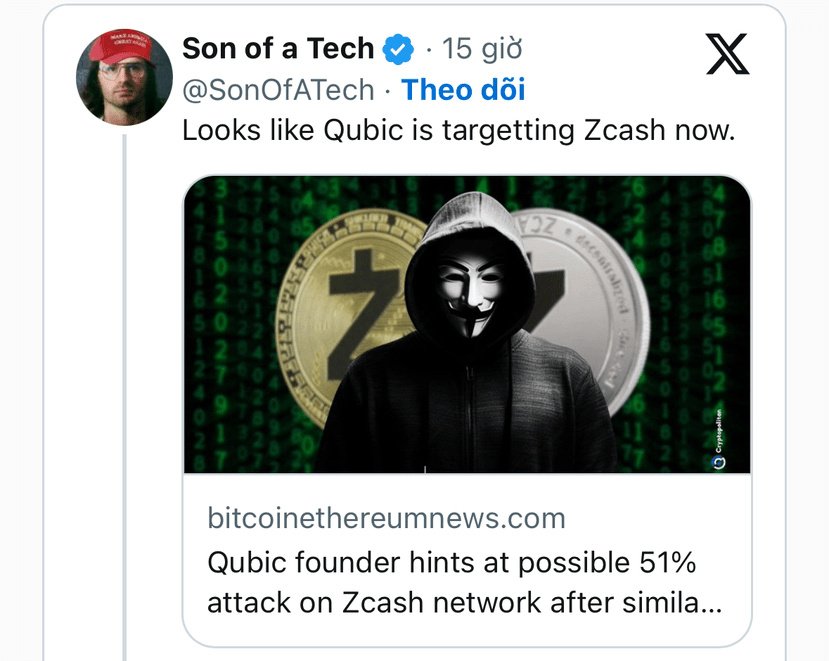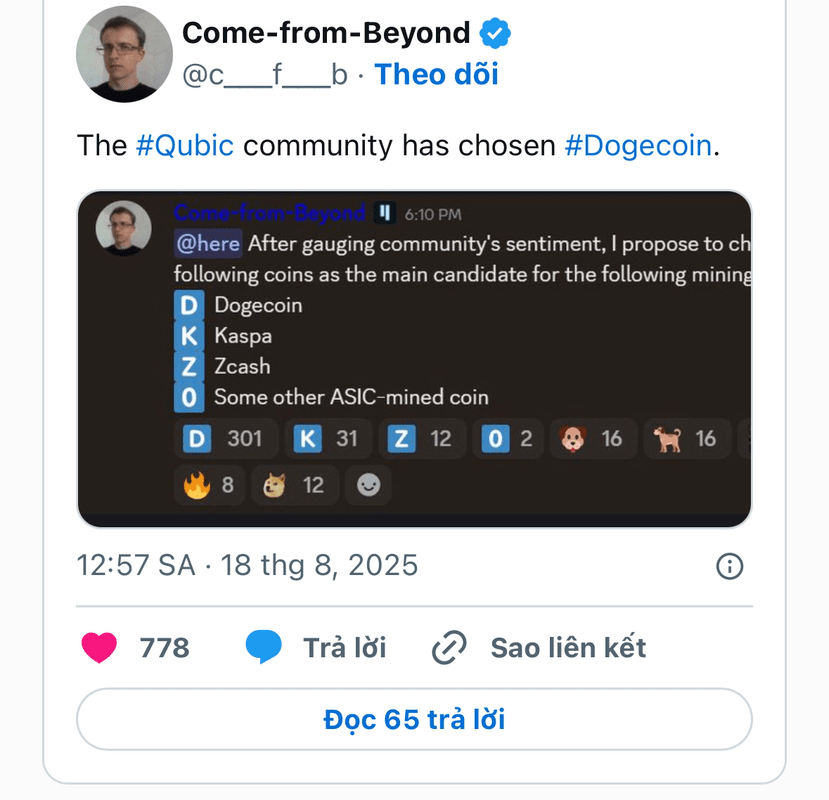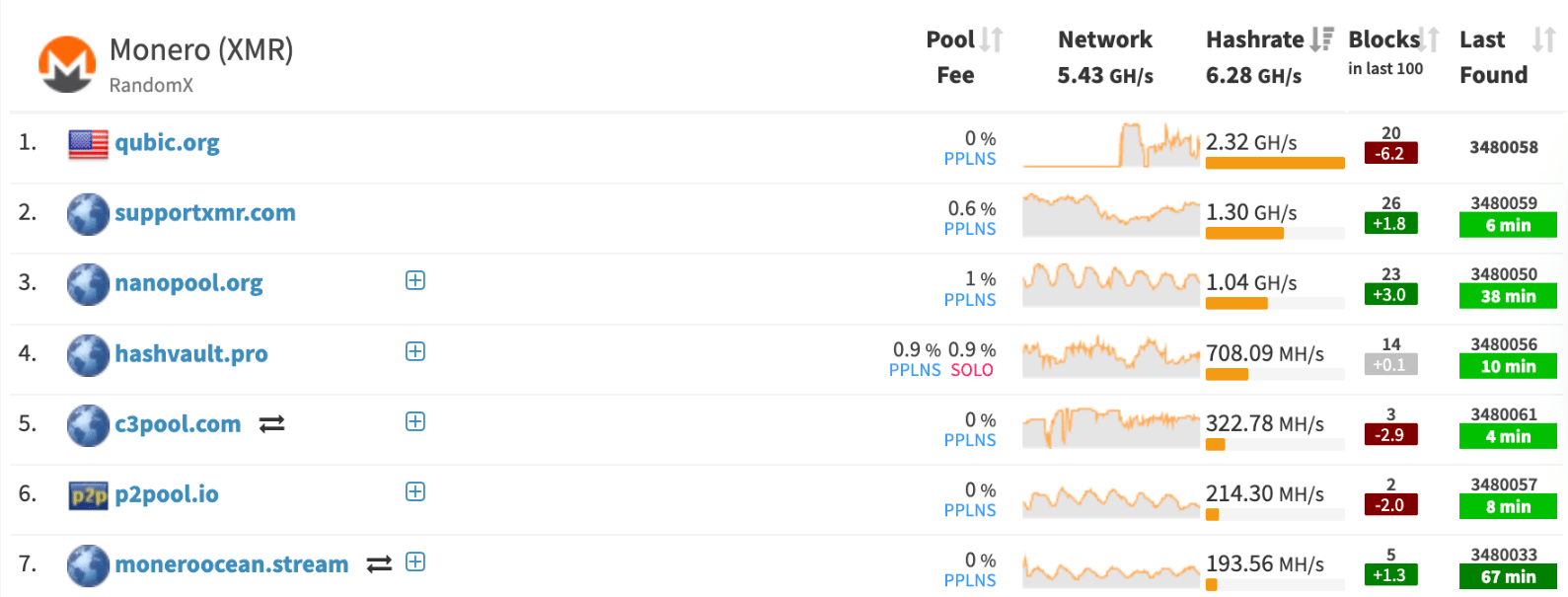The Qubic community, a blockchain project focused on artificial intelligence, successfully carried out a 51% attack on Monero this week, gaining control over the majority of the network's computational power. Currently, this community has voted to determine its next target, which is Dogecoin.
Sergey Ivancheglo, the founder of the Qubic network, questioned the community about which proof-of-work (POW) blockchain with specific application-specific integrated circuit (ASIC) integration they should target in the next 51% attack, with options including DOGE, Kaspa, and Zcash.


'The Qubic community has chosen Dogecoin,' Ivancheglo, who uses the online handle Come-from-Beyond, said in a post on X on Sunday, announcing the results of the vote.
Dogecoin, with a market capitalization exceeding $35 billion, received over 300 votes, more than the total votes of all other networks combined.
Qubic's successful 51% attack on Monero, a privacy-focused blockchain, has surprised the cryptocurrency community. A network focused on AI targeting another POW cryptocurrency could have concerning implications for digital asset blockchains that rely on mining.
Qubic has achieved a hashrate advantage over the Monero network.
The Qubic team announced that they gained control over the majority of the computational power used to secure the Monero network last Monday. The Qubic mining pool successfully reorganized six blocks after a month of competition with other Monero miners to gain control of the network's hashrate.
At this time, the Qubic mining pool is holding a hashrate of approximately 2.32 gigahashes per second (GH/s), according to data from MiningPoolStats.

'The core functions of the Monero network remain intact. Its privacy, speed, and usability are not affected,' the Qubic team said in an announcement on Tuesday after the takeover.
'However, the ultimate goal is to ensure the security of the Monero protocol is provided by Qubic miners,' the team continued.
After the attack, the Kraken exchange temporarily suspended the sending of Monero on its platform, citing 'potential risks to the integrity of the network' due to the 51% takeover of Monero by a single miner.
Although the sending of Monero has been paused, the exchange still allows XMR withdrawals and trading, while informing users that sending XMR will be restored when the exchange deems it 'safe,' according to the company's announcement.
